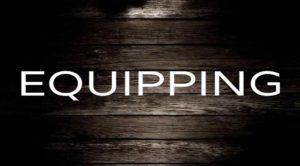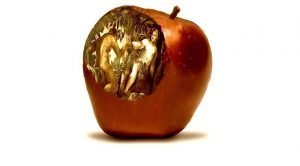All Christians have a duty to study the word of God and they all need to do it responsibly. The word of God guides us and impacts our lives at all levels. It does not only have the potential to but in fact does change our lives in a very significant way. This is serious stuff. The guidelines in this post is therefore not only for beginners but also for serious Bible Scholars. I kick off with general guidelines and information regarding the correct Bible study tools and then I discuss the serious pitfalls when using incorrect Bible study tools.
Bibles
Only make use of Bibles translated from the Textus Receptus (“received text”). These Bibles were translated from the authentic (original or old or first) texts and are absolutely authentic. Only a few Bibles (older Bibles) were translated from the authentic original texts:
1526, 1534 Tyndale New Testament
1535 Coverdale Bible
1537 Matthew Bible
1539 Great Bible
1560-1644 Geneva Bible
1568 Bishops’ Bible
1611, 1769 King James Bible
1764 Quaker Bible
1833 Webster Bible
1862 Young’s Literal Translation
1876 Julia E. Smith Parker Translation
Of all the Bibles above my favorite is the Geneva Bible which can be downloaded for FREE on my website. This is in my opinion the most authentic Bible that exists. You can download it for FREE on the “Resources” page.
Beware when somebody refers to the original text. It might be that they are referring to the false “original text” (new or younger texts) from which all newer Bibles were and are being translated (Alexandrian Texts also called the “minority texts” which is a compilation of modern manuscripts written in the original languages by members of the Roman Catholic Church: Codex: A,B,C and D, Codex Sinaiticus (S) (fourth century), The Shepherd of Hermes, Codex Vaticanus (B) (fourth century), Codex Alexandrinius (A) (fith century), Hexapla Bible of Origenes, Eusebio-Origenes Bible written by Eusibeus, Latin Vulgate Bible of Jerome)
Concordances, lexicons, dictionaries and commentaries
This is what author Christopher J. E. Johnson has to say about it:
“Dangers of Using Lexicons and Concordances”
I am certain this title will confuse and upset a number of people before they even begin to read this article. I know for a fact that many of our listeners still use lexicons and concordances in their daily studies, or at least when they run into difficult passages in the Bible and don’t know where to turn. I am going to do my best to explain this issue as simplistically as possible, so the average reader can understand the corruption behind the modern-day method of “studying” the Word of God, and why so many Christians are unknowingly being taught to walk away from the foundation of the Bible, and move toward Satan’s new-age deception, being taught to look for the Devil’s interpretation of Scripture.
This is the view of many concordances, dictionaries and lexicons writers: Readers of a concordance or a lexicon often want to know the meaning of a passage, not just definitions of words, but, authors of concordances, dictionaries and lexicons can’t give interpretations, and those interpretations should be avoided. Instead, the authors simply give every “current” meaning of a particular word from a Greek grammar perspective.
The problem is that this also includes how the minority Alexandrian texts had altered the meaning of words, and they let the reader pick and choose whatever definition they personally like using, essentially giving the Bible their own interpretation, doing that which is right in own eyes, instead of looking at the context of the Bible scriptures for direction from the Lord God on how to define His word. The problem is that concordances and lexicons do not give context but a list of possible meanings of which some are corrupt.
Teams of lexicographers will sometimes debate definitions endlessly, and come to no conclusions. They simply print out a bunch of options, and pass the confusion on to those who purchase their materials.
Whenever some new lexicon or concordance or dictionary comes out, please understand, it’s not new. Everything these scribes write is based on the writings of the scribes who came before them, who based their work on other scribes, who based their writings on books that were translated from the corrupt Alexandrian minority manuscripts
In simple terms, this means there is no way you can trust anything written in these lexicons and concordances and dictionaries. They are not designed in submission to the authority of God, but rather they honor themselves with their own prestige, fooling the masses into thinking they have knowledge and truth from the Lord Jesus Christ.
Most often, dictionaries in general are not written as much as they are copied. Very few people are aware of this, and it’s the primary reason that, in my teachings, I tell people to be cautious of dictionary use, and I typically only recommend Noah Webster’s 1828 dictionary because he created it based on the definitions put forth in God’s Word through the King James Bible. Outside of Noah Webster, I am extremely cautious with dictionaries, although most of the world holds them as a final authority, despite the fact that most are plagiarized.
Bible commentaries not only have influence from the lexicons, but often include references to other authors’ names, which are usually authors of other commentaries and lexicons. This is a tradition that has been handed down by the Catholic Church from pagan philosophers for many centuries, and still exists today because men love the prestige they receive from the public; feigning that they have understanding of the doctrines of Christ.
– Christopher J. E. Johnson
The 1928 Noah Webster English Dictionary is available for FREE on this website on the “Resources” page.
To read more about this subject, click on this link which is a short post written by Christopher J. E. Johnson:
“Dangers of Using Lexicons and Concordances”
The dangers in terms of authors of commentaries: They attempted to put the Scriptures in context by giving explanations but unfortunately almost all commentaries are corrupted by either the corrupt Alexandrian minority manuscripts, and/or teachings and meanings based on corrupt concordances, lexicons and dictionaries and/or influences of false modern-day teachings and doctrines in general. This implies that commentaries are just as corrupt as the resources it has as a foundation.
If you want to learn more details about how specifically preachers deceive people through this on a weekly basis by using lexicons, concordances, dictionaries, and commentaries, please read the article: “The ‘Original Greek’ Scam” There is a test in that article that you can take that will demonstrate the problem. (If you’re interpreting the Word of God by context as you’re supposed to, you won’t score very high on the test, keep that in mind.)
Although I personally prefer the Geneva Bible for Bible studies, click on this link below to read what Christopher J. E. Johnson says about the King James version which is quite interesting:
Why I Use the King James Version
This article will help Christians understand that the Word of God is pure and preserved, but there are many counterfeits out there that the Devil attempts to use to confuse the born-again Body of Christ, and further lead astray false converts. There will be subjects I will refer to that will not be fully explained because I am writing this under the assumption that the reader has knowledge of the issues we have already covered in the past.
Summary:
Only make use of Bibles translated from the Textus Receptus (“received text”). It is the authentic original version of the Bible given us by God.
Do not use concordances or lexicons or commentaries or dictionaries. The Bible is on its own a complete study guide because the context of words and sentences are actually revealed by Scriptures itself.
If you must use a dictionary then only use the Noah Webster’s (1828) dictionary. The use of any other dictionary or concordance or lexicon or commentary must be done with extreme caution. They are all corrupt and have the potential to seriously mislead many Christians and in my opinion not worthy to be used at all.
All local resources on this website are free of charge. Please help us by sharing it with your friends through the social networks. Social network sharing buttons available at the bottom of all pages






